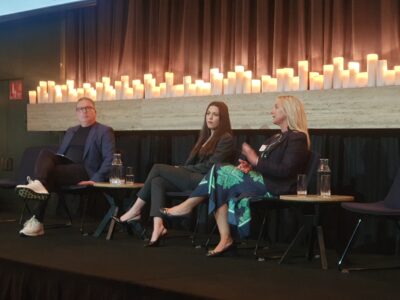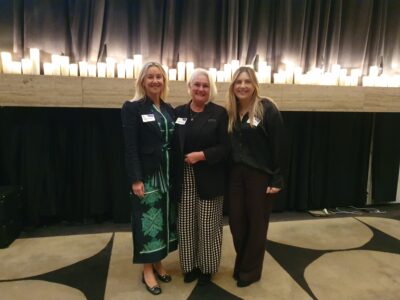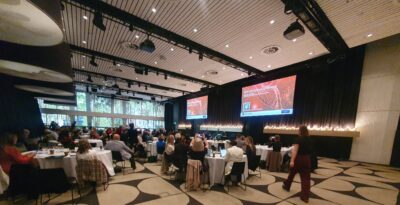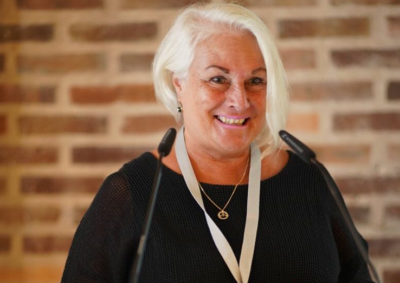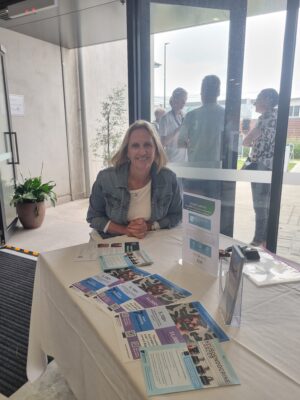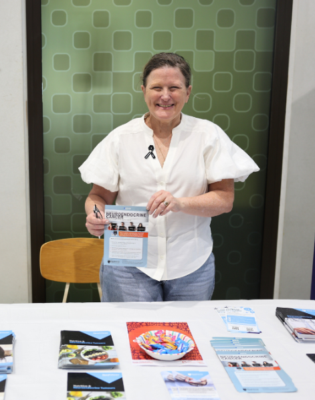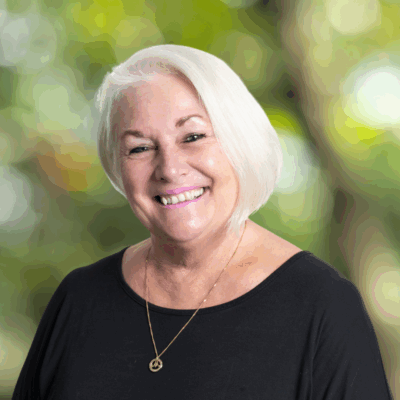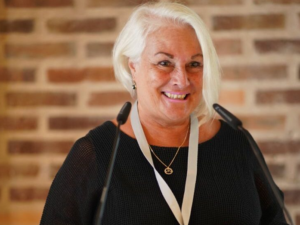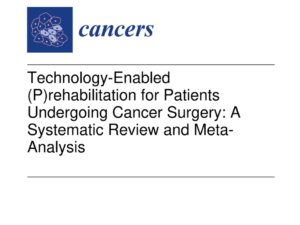BioPharmaDispatch 2025: Putting NETs on the National Agenda
NeuroEndocrine Cancer Australia was proud to attend the BioPharmaDispatch 2025 Conference in Sydney this month, represented by our CEO Meredith Cummins and Media & External Relations lead Ciara Connolly. The conference brought together key voices across the pharmaceutical, government, and patient advocacy sectors to discuss access, equity, and the future of healthcare in Australia.
Our Board Member and Co-Founder Simone Leyden joined a powerful panel discussion on nuclear medicine, highlighting Australia’s global leadership in the use of theranostics for treating Neuroendocrine Tumours (NETs), a practice that has been saving and extending lives here for more than two decades. Her insights underscored the urgent need to protect and expand access to these life-changing treatments as patient demand and clinical complexity increase.
The conference also addressed the shifting federal landscape, including the recent addition of the NDIS portfolio to the responsibilities of Health Minister Mark Butler. While this consolidation may help improve alignment across health and disability services, it also makes it more difficult for advocates to gain access. With one Minister now overseeing two of the most complex and high-pressure portfolios in government, concerns remain about delays in engagement and decision-making.
These challenges are compounded by persistent issues within the MSAC and PBAC evaluation pathways, where barriers continue to limit timely access to essential diagnostics and therapies. This is particularly true for people living with under-recognised and complex cancers like NETs. In response, the NECA team continues to engage with decision-makers, submit policy recommendations and work in coalition with other advocacy groups to ensure these critical issues remain firmly on the agenda.
Our presence at BioPharmaDispatch was about more than representation, it was about reinforcing the critical role of patient organisations in shaping health policy at the tables that matter. We remain deeply committed to ensuring the voices of NET patients are heard, valued, and acted upon in every conversation about the future of Australia’s healthcare system.
NeuroEndocrine Cancer Australia was proud to attend the BioPharmaDispatch 2025 Conference in Sydney this month, represented by our CEO Meredith Cummins and Media & External Relations lead Ciara Connolly. The conference brought together key voices across the pharmaceutical, government, and patient advocacy sectors to discuss access, equity, and the future of healthcare in Australia.
Our Board Member and Co-Founder Simone Leyden joined a powerful panel discussion on nuclear medicine, highlighting Australia’s global leadership in the use of theranostics for treating Neuroendocrine Tumours (NETs), a practice that has been saving and extending lives here for more than two decades. Her insights underscored the urgent need to protect and expand access to these life-changing treatments as patient demand and clinical complexity increase.
The conference also addressed the shifting federal landscape, including the recent addition of the NDIS portfolio to the responsibilities of Health Minister Mark Butler. While this consolidation may help improve alignment across health and disability services, it also makes it more difficult for advocates to gain access. With one Minister now overseeing two of the most complex and high-pressure portfolios in government, concerns remain about delays in engagement and decision-making.
These challenges are compounded by persistent issues within the MSAC and PBAC evaluation pathways, where barriers continue to limit timely access to essential diagnostics and therapies. This is particularly true for people living with under-recognised and complex cancers like NETs. In response, the NECA team continues to engage with decision-makers, submit policy recommendations and work in coalition with other advocacy groups to ensure these critical issues remain firmly on the agenda.
Our presence at BioPharmaDispatch was about more than representation, it was about reinforcing the critical role of patient organisations in shaping health policy at the tables that matter. We remain deeply committed to ensuring the voices of NET patients are heard, valued, and acted upon in every conversation about the future of Australia’s healthcare system.

